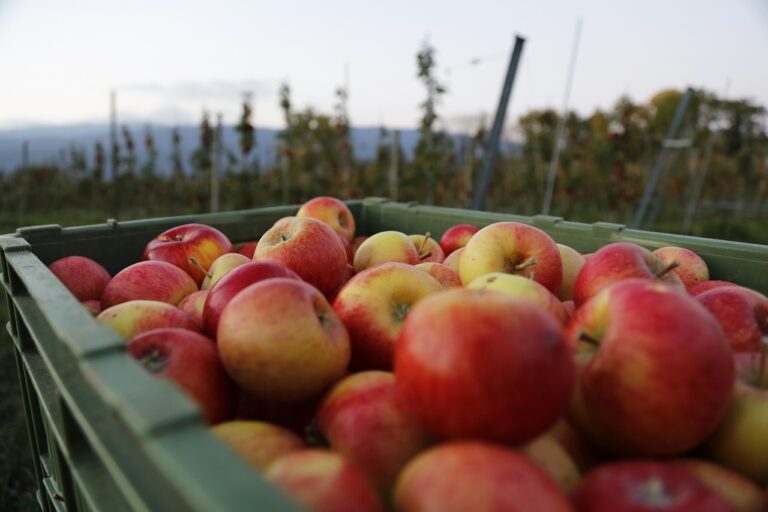The Impact of Agroecology on Rural Development and Poverty Alleviation: Diamondexch sign up, Sky 99 exch, Reddy anna book club
diamondexch sign up, sky 99 exch, reddy anna book club: Agroecology is a sustainable farming method that focuses on working with nature to achieve food security, promote biodiversity, and enhance the resilience of farming systems. In recent years, agroecology has gained recognition for its potential to contribute to rural development and poverty alleviation. This article explores the impact of agroecology on rural development and poverty alleviation, highlighting the benefits and challenges associated with this approach.
Agroecology and Rural Development
Agroecology offers a holistic approach to farming that integrates ecological principles, traditional knowledge, and modern science to create resilient and sustainable agricultural systems. By promoting diverse cropping systems, natural pest control, and soil conservation practices, agroecology can help small-scale farmers improve their productivity and livelihoods. In addition, agroecology emphasizes the importance of social equity, gender equality, and community empowerment, fostering stronger rural communities and enhancing social cohesion.
One of the key benefits of agroecology for rural development is its ability to enhance food security and nutrition. By promoting diverse and nutritious crops, agroecology can help small-scale farmers produce a wider range of foods to meet the dietary needs of their communities. This can have a significant impact on reducing malnutrition and improving health outcomes, especially in rural areas where access to nutritious foods is limited.
Agroecology also offers environmental benefits that can contribute to rural development. By promoting organic farming practices, agroecology helps reduce the use of chemical inputs and minimize the negative impacts of agriculture on the environment. This can lead to improved soil fertility, water quality, and biodiversity, creating a more sustainable and resilient farming system for future generations.
Poverty Alleviation through Agroecology
In addition to promoting rural development, agroecology also has the potential to alleviate poverty among small-scale farmers. By increasing productivity, reducing production costs, and improving market access, agroecology can help small-scale farmers increase their incomes and improve their livelihoods. This can have a transformative impact on rural communities, lifting families out of poverty and creating opportunities for economic growth.
One of the ways agroecology can help alleviate poverty is by promoting sustainable livelihoods for small-scale farmers. By diversifying their crops, implementing sustainable farming practices, and accessing alternative markets, small-scale farmers can increase their resilience to climate change, market fluctuations, and other risks. This can help reduce their vulnerability to poverty and improve their long-term economic prospects.
Agroecology also has the potential to empower marginalized groups, such as women and indigenous communities, by providing them with the knowledge, skills, and resources they need to engage in sustainable agriculture. By promoting gender equality, social inclusion, and community participation, agroecology can help overcome structural barriers to poverty alleviation and promote social justice in rural areas.
Challenges and Opportunities
While agroecology offers many benefits for rural development and poverty alleviation, it also faces several challenges that need to be addressed. One of the main challenges is the lack of support from governments, policymakers, and the private sector for agroecological practices. Many agricultural policies and programs still prioritize conventional farming methods and input-intensive approaches, which can hinder the adoption of agroecology by small-scale farmers.
Another challenge is the limited access to resources, such as land, water, seeds, and credit, that small-scale farmers need to adopt agroecological practices. Without adequate support from governments, NGOs, and other stakeholders, small-scale farmers may struggle to transition to agroecology and reap its benefits. Additionally, the lack of technical assistance, training, and extension services can also pose barriers to the widespread adoption of agroecology among small-scale farmers.
Despite these challenges, there are also opportunities to promote agroecology for rural development and poverty alleviation. By investing in research and education on agroecological practices, building partnerships with local communities, and providing policy incentives for sustainable agriculture, governments and stakeholders can create an enabling environment for agroecology to thrive. In addition, promoting agroecological values, such as ecological sustainability, social equity, and cultural diversity, can help raise awareness and build support for agroecology among consumers, policymakers, and the public.
FAQs
1. What is agroecology?
Agroecology is a sustainable farming approach that focuses on working with nature to achieve food security, promote biodiversity, and enhance the resilience of farming systems. It integrates ecological principles, traditional knowledge, and modern science to create sustainable agricultural systems.
2. How can agroecology contribute to rural development?
Agroecology can contribute to rural development by enhancing food security, promoting sustainable farming practices, and empowering small-scale farmers to improve their livelihoods. It can also lead to environmental benefits, such as improved soil fertility, water quality, and biodiversity.
3. What are some challenges to adopting agroecology?
Some challenges to adopting agroecology include the lack of support from governments and policymakers, limited access to resources, such as land and credit, and the lack of technical assistance and extension services for small-scale farmers. Overcoming these challenges will require concerted efforts from governments, NGOs, and other stakeholders to promote agroecology.
4. How can agroecology help alleviate poverty?
Agroecology can help alleviate poverty by increasing productivity, reducing production costs, and improving market access for small-scale farmers. By promoting sustainable livelihoods, empowering marginalized groups, and fostering social inclusion, agroecology can help lift families out of poverty and create opportunities for economic growth in rural areas.
In conclusion, agroecology has the potential to make a significant impact on rural development and poverty alleviation by promoting sustainable agriculture, empowering small-scale farmers, and fostering social justice in rural communities. By overcoming the challenges and seizing the opportunities associated with agroecology, governments, policymakers, and stakeholders can create a more sustainable and equitable food system for future generations.







